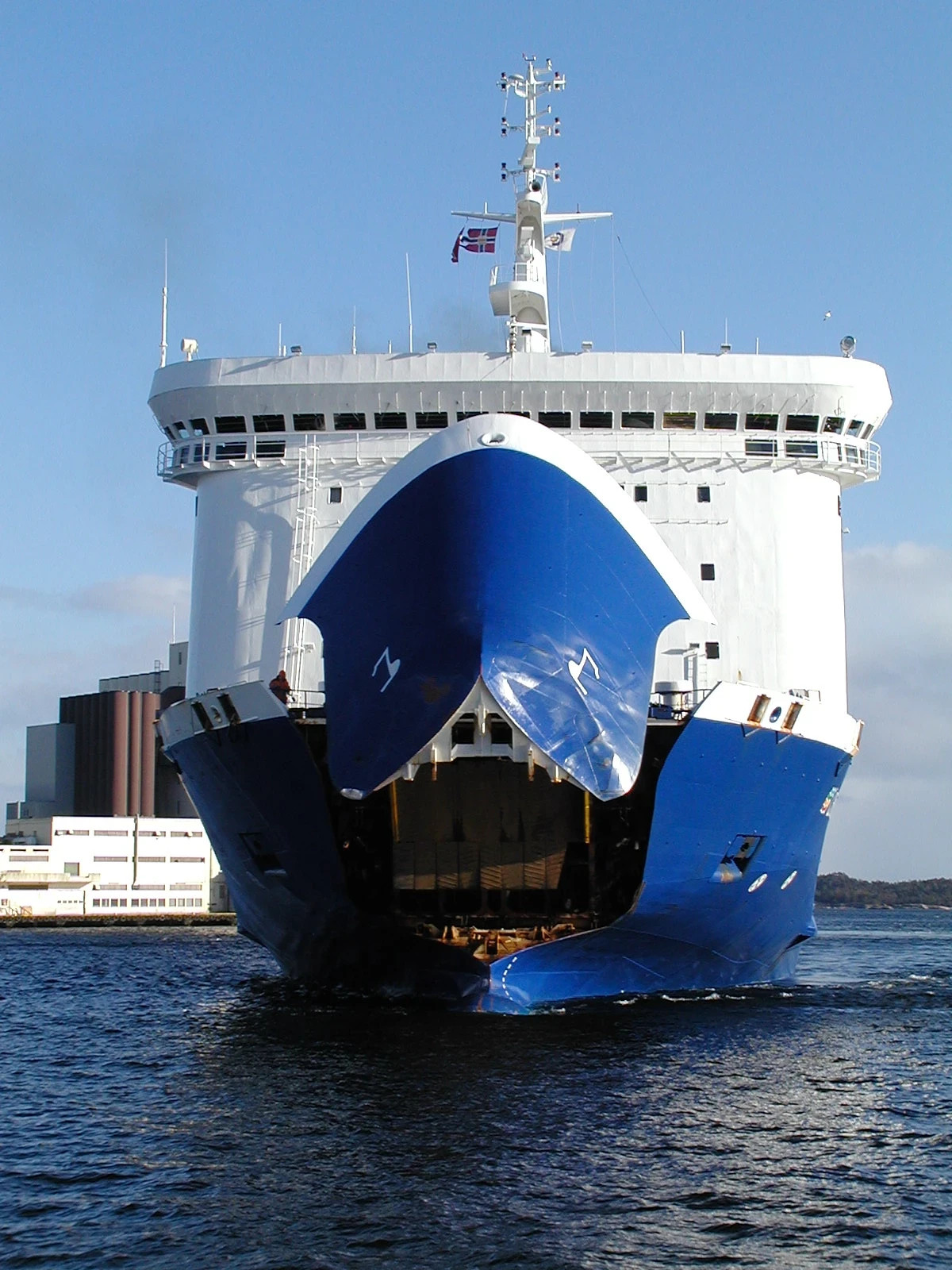
Services
Main Services
Seafreight.biz offers individual, flexible and environmentally friendly sea freight solutions that combine the latest technology with expertise.
Our young and motivated team is personally at your side and guarantees you the best prices for your transport and logistics needs. Put your trust in our dynamic service and benefit from our many years of experience in the industry.

FCL - Full Container Load
Exclusive container: The container is only loaded with the goods of one shipper. There is no mixing with goods from other shippers.
Cost structure: The cost of transporting an FCL is usually a flat rate for the entire container, regardless of how much space is actually used.
Speed and safety: Since the container is not shared, the risk of damage or loss due to third-party handling is lower. In addition, FCL shipments can be processed faster as there is no waiting time for loading or unloading goods from other shippers.
Flexibility: FCL is ideal for large shipments that have enough volume to fill an entire container or when a shipper wants full control over the container.

LCL - Less than Container Load
Consolidation: The goods of several shippers are combined into a single container.
Cost savings: Because the cost of the container is spread across multiple shippers, LCL is often less expensive than FCL (Full Container Load) for smaller shipments.
Logistical complexity: Because multiple parties are involved, LCL shipments can be more complex, especially in terms of coordination and scheduling.
Longer transit times: Because goods from different shippers must be consolidated and sorted in a warehouse, shipping can take longer than FCL.
Flexibility: LCL is ideal for companies that ship smaller quantities on a regular basis without sacrificing the flexibility of a full container.
LCL is a widely used and useful option in international sea freight, especially for smaller companies or for shipping samples and prototypes.

RO/RO - Roll on Roll off
Direct loading and unloading: Vehicles such as cars, trucks, trailers, construction equipment and even railway wagons can be driven directly onto the ship and driven off again at the destination port. This reduces the effort required for loading and unloading.
Specialized ships: Ro/Ro ships are specially designed to accommodate rolling cargo. They have ramps and decks that allow vehicles to be easily driven in and out.
Speed and efficiency: Since no container handling is necessary, loading and unloading can be done relatively quickly and efficiently. This is particularly advantageous for large quantities of vehicles.
Versatility: In addition to regular vehicles, bulky goods transported on special trailers or platforms can also be shipped by Ro/Ro.
Ro/Ro is often used for international automobile transport, but also for other large, bulky or rolling goods that cannot be easily loaded into containers.

WE TAILOR OUR SERVICES TO MEET YOUR UNIQUE BUSINESS NEEDS, NO MATTER THE DESTINATION
Additional Services

Container Trucking
Port-to-destination transportation (or vice versa): Containers are often brought to a port by ship and then need to be transported from the port to a destination such as a warehouse, factory or distribution center. This transportation is usually done by truck.
Intermodal transportation: Container trucking is often a component of intermodal transportation, where containers are moved seamlessly between different modes of transportation (ship, train, truck) without the need to transfer the goods within the container.
Chassis: Special trailers called chassis are used to transport the containers, allowing the container to be securely attached to the truck and transported.
Last-mile delivery: In many cases, container trucking handles the "last mile" of transportation, the final leg of the supply chain where the goods are delivered to their final destination.
Timing and coordination: Container trucking requires precise coordination, especially when it comes to picking up containers from ports or container terminals, where there are often tight time windows for loading.
Cost and efficiency: Container trucking can be a cost-effective solution, especially for short to medium distances. It offers flexibility and the ability to bring containers directly to their destination.
Container trucking is therefore an essential part of global supply chains and plays a crucial role in transporting goods efficiently from the port or terminal to the final consumer.

Customs Clearance
Customs declaration: The importer or exporter (or a customs agent appointed by them) files a customs declaration. This contains detailed information about the goods, including description, quantity, value, origin and tariff number.
Document verification: The customs authority verifies the documents submitted, such as invoices, consignment notes, certificates of origin and any permits or licenses. These documents must be correct and complete to avoid delays.
Goods inspection: In some cases, customs authorities may order physical inspection of the goods to ensure that the information in the documents matches the actual cargo.
Calculation and payment of duties and taxes: Based on the value of the goods, the type of goods and the country of origin, customs duties, import VAT and possibly other duties are calculated. These must be paid before the goods are released.
Release of goods: After the inspection is complete and the applicable duties are paid, customs will release the goods so that they can enter free circulation. When exported, the goods are released for shipment.
Customs procedures: There are different customs procedures depending on the type and purpose of the import or export. Examples include release for free circulation, temporary use, customs warehousing or inward processing.
Ensuring compliance: Companies must ensure that they comply with all relevant customs regulations to avoid penalties or delays. This includes correctly declaring goods and complying with trade restrictions.
Customs clearance is therefore a key process in international trade that ensures that all relevant regulations are complied with and the necessary duties are paid before goods can be imported into or exported from a country.

Transport Insurance
Extent of coverage: Cargo insurance can cover various risks, depending on the type of policy and the specific needs of the shipper. Common risks include:
Damage caused by accident (e.g. road accident, shipwreck)
Theft or robbery
Damage caused by natural events (e.g. storm, flood)
Fire or explosion
Loss or misplacement of goods
Types of cargo insurance:
Single policy: This is taken out for a specific transportation operation. It is only valid for that one shipment and covers the goods along their entire route.
General policy: This covers multiple shipments over a specific period of time. It is ideal for companies that ship goods on a regular basis.
All-risk insurance: Covers all risks unless they are specifically excluded.
Named perils insurance: Covers only the risks specifically named in the policy.
Means of transport: Insurance can be taken out for various means of transport, including sea freight, air freight, road and rail transport.
Insured value: The insured amount is usually based on the value of the goods, including freight costs and, if applicable, an additional profit margin.
Geographical coverage: Depending on the policy, the coverage may apply to national or international transport.
Excess: There is often an excess that the insured must pay in the event of a claim. This amount is set in advance in the insurance contract.
Advantages:
Risk minimization: Protection against financial losses due to unforeseen events.
Contract requirements: Transport insurance is often part of purchase or delivery contracts, especially in international trade.
Cost: The amount of the premium depends on various factors, such as the value of the goods, the type of transport, the risks to be insured and the geographical range.
Transport insurance is therefore an important tool for companies and individuals who regularly ship goods to protect themselves against financial risks and ensure the continuity of their business.

WE COMBINE INNOVATION AND EXPERTISE TO DELIVER SMARTER SHIPPING SOLUTIONS
Home / Quotation Request / Tracking / About us / Services / Our work / Contact / Imprint & Terms
Seafreight.biz - International Relocation Services s.r.o.
Location: Stefanikova 21, 811 05 Bratislava
E-Mail: sales@seafreight.biz
Monday to Thursday: 8am - 5pm
Friday: 8am - 3pm
Saturday & Sunday: Closed
